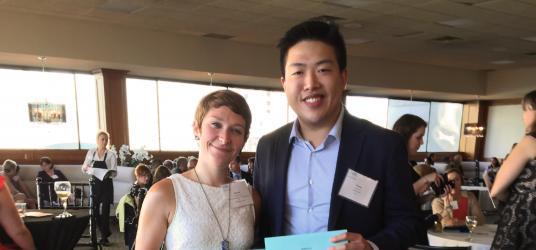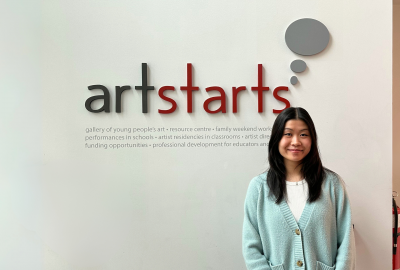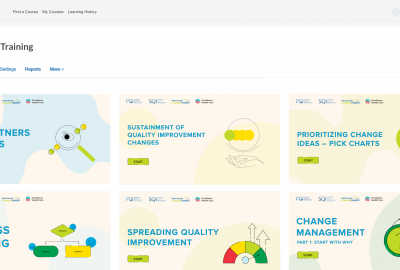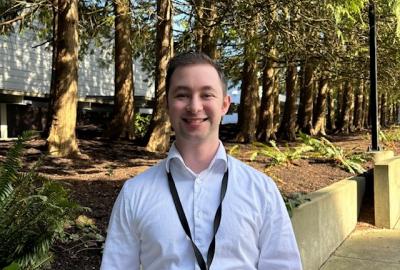
Is an undergraduate degree the new high school diploma? For some employers today, a university or college degree has become the minimum qualification for most basic, entry-level jobs. This certainly makes things more competitive as having a post-secondary education no longer seems to be enough to get you hired. Lucky for me (and you too, now), I was able to speak with Communication Co-op student Terence Chu who won the International Association of Business Communicators (IABC) 2015 Student Communicator of the Year (SCOY) Award of Merit in May. Through speaking with Terence, it became clear to me how to work through this degree-does-not-guarantee-you-employment conundrum: it’s not what your communication degree can do for you; it’s what you can do for your communication degree.
Terence is a Communication student who realized early on the need to set himself apart from his future job competitors. One of his first steps towards this end was to gain work experience by registering in SFUs Communication Co-op program. In his first co-op work term, Terence took on the role of Marketing and Communications Assistant for Go2HR – a not-for-profit association that supports tourism and hospitality companies in recruiting, retaining and training employees through notable programs such as FOODSAFE and Serving It Right. During his time with Go2HR, he was able to experience a variety of tasks from managing an advertising campaign on LinkedIn to creating digital display ads for the Tourism Vancouver Visitor Centre and even had the opportunity to assist with organizing an annual Summit. “[It] was very fulfilling and a lot of fun. BC’s tourism and hospitality industry is especially dynamic with interesting people and exciting jobs. I had the opportunity to work with ski resorts, tourist attraction operators, restaurants and hotels.” Now on his third work term, Terence has added experience from a global telecommunications company, Ericsson, and one of the world’s largest full-service communications agencies, FleishmanHillard. “I believe that the SFU Co-op program has given me an incredible edge in the job market. From learning how to write an effective resume to excelling at work, the co-op program has given me the tools and confidence to work after university.”
In April of 2015, Terence made the decision to join IABC and one month later, he found himself attending the awards gala to accept the 2015 SCOY Award of Merit. Inquiring as to why he joined IABC in the first place Terence replied, “I’m always on the lookout for opportunities to expand my professional network and IABC has a lot to offer.” IABC stands for the International Association of Business Communicators, and the BC chapter is home to a community of local communication professionals. IABC provides members with opportunities to expand their professional networks through networking events, volunteering and the sharing of ideas, connections and passion for communication in a wide range of professions and disciplines. Their Student Communicator of the Year Award, or SCOY, is an annual awards program where student members of IABC submit communications projects and receive feedback from a panel of industry experts. The award recognizes students for excellence in communication, which is exactly what Terence brings to the table.
The work that won him the honour of SCOY’s Award of Merit for 2015 was a communication plan for the North American Occupational Safety and Health (NAOSH) Week as part his co-op work term with Go2HR. According to Terence, “our goal was to work with operators in the [tourism and hospitality] industry to create safer workplaces with an emphasis on prevention.” Terence’s project included a communication plan, informational webpages, newsletters and a contest component. Upon its release, not only was the campaign highly successful, but “it also made a positive impact in the lives of workers in the tourism and hospitality industry”. Evidently, it was a source of pride for Terence even before it became a prestigious, award-winning project. “Being recognized by IABC was a great honour and a validation of the work that I put into developing my career in the past few years.”
So, what have I learned from Terence, his achievements and experiences? Well, for starters, an education in communication can be applied to numerous industries and fields from tourism and hospitality to global telecommunications. However, I have realized that the diverse nature of my communication degree alone will not assist me in getting a job after graduation. Looking at what Terence has accomplished during his undergraduate degree, it is clear that he didn’t get there solely by attending classes and handing in assignments (although that is also an important component!). In addition to going to school, he took chances and went for opportunities, such as joining co-op and becoming a member of IABC. Nearing the end of his time here at SFU, Terence has not only made his degree reflect the diverse opportunities out there for careers in the field of communication, but has also been proactive in making himself stand out from the vast sea of degrees flowing from universities every year. In my opinion, this is what defines thinking and acting outside the my-degree-alone-will-get-me-a-job-after-graduation box.















